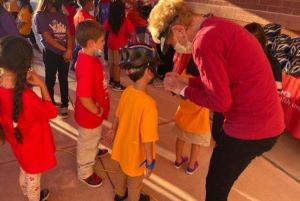
In raising five active children, one of the hardest things I have dealt with were head injuries. Throughout the years my boys played football, my daughters were active in both cheerleading and dance, and all of them enjoyed bike riding, roller blading and skate boarding. Unfortunately, we couldn’t avoid the bumps, bruises and scrapes that typically occur. Over the years, my wife and I have also visited many emergency departments due to head injuries and concussions.
Having one child in the emergency department, due to a head injury (concussion) is not only stressful at the time, but once you get home, the weeks and/or months-following, can also be challenging. Having good information and guidance is very important. Stay on top of the concussion protocols with the CDC and be sure to follow up with your child’s physician.
Here are a few other ways to prevent a concussion:
- Make sure your child always wears an appropriate helmet for the activity. Wearing a helmet will not prevent a concussion, but will reduce the risk for serious head injury.
- If you have a toddler at home, using a stair gate at the top and bottom of the stairs can help protect your crawling or walking child.
- Soft playground surfaces help to cushion falls from swings, slides and other playground equipment. Using playgrounds with surfaces like wood chips, mulch, or sand help keep children safe.
One of the easiest and most effective ways to reduce the risk of a head injury is with a helmet, but unfortunately, not all kids wear one. The biggest misconception about helmets is that they’re not necessary, especially if kids are just riding their bikes in the driveway or close to home. A properly fitted helmet will provide protection and should always be worn. Choose bike helmets that meet Consumer Product Safety Commission (CPSC) standards and replace them after a crash or when suggested by the manufacturer.
Phoenix Children’s provides complimentary helmets to families in need to help keep kids safe on their bikes, scooters, skates, and ATVs. To learn how to properly fit and use a helmet for your child, click here.
